
I've been reading Shannon Hale's The Goose Girl at last, after loving The Princess Academy . And I have to admit that all the attention Hale has received in the last few years is well deserved.
Hale is a meticulous writer, and her prose is full of lovely similes, gorgous descriptions, really creative character details(which is to say that she shows, rather than tells.. when it comes to internal landscapes)and a general fluency with language. She's a poetic writer. I even caught a little Emily Dickinson riff in there.
More importantly perhaps, Hale has a skill with creating worlds. Without ever sounding artifically olden-timey or high-falutin, she manages to evoke believable once-upon-a-timeness. This is something I envy her-- that she neither dips into the language of our world today, nor relies on grandiose speech.
In Princess Academy, I was blown away with Hale's imagination, with the element of "Quarry-speech (people can communicate through memory, and stone, but you'll have to read the book to really understand what that means) in particular. And though The Goose Girl shows a less innovative streak, I think that's mostly because she's set her book inside an old fairy tale, and (correctly I think) used the narrative scaffold to its fullest, leaving less room for wilder invention.
Both books do a really subtle job of integrating feminist (and also a bit of political) theory into the fairy tale universe, without ever being heavy handed, or pulling the reader out of the story/mythic realm. And this too is something I strive for myself, and struggle with-- how to NOT cave to the worst aspects of our canon/tradition, but to also preserve the "feel" of the fairy tale.
How to allow a princess her swoons and her crowns and her moments of weakness, and yet send a message to girls today that they DON'T need to wait for a prince.
Hale is really really good at walking this tightrope.
So all in all, I have to say that this woman just pretty much rocks the princess novel, hard. But there are two things I want to mention/ask about, in closing.
1. What do people think of the recent trend in fairy-tale retelling? In general? I mean, this isn't new, really (fairy tales have ALWAYS been retold, rewritten. That's one of the things that makes them fairy tales). But it does seems there's a lot of it today. From people like Sarah Beth Durst, whose new book delves into the Rapunzel myth in a far less traditional manner, to the wildly succesful (and not so new) Ella Enchanted. What do people think of these books? I ask mainly because I've noticed recent press for a few new books like this that are coming down the pipe in the near future, and I'm intrigued at why this is happening right now. I wonder what you folks have to say about this trend...
and also... another question related to Hale...
2. What do people think of Hale as a YA writer? While her books are longish, and they do involve a few innocent kisses and embraces here and there, I don't really read them as YA. Is this classification simply an issue of length, and the fact that this sort of fairy-tale mode requires princes and princesses, and so bumps into issues of dating/courtship/betrothel? I've dealt with this myself a bit for an upcoming book), and fought with the question of how to turn a child princess into a marriageable woman in 200 pages... and I find it a little bewildering. Since fairy tales (not to mention Disney movies) are full of love/dating/kissing but are NOT YA. In Hale's writing, I'm inclined to say that the tweenage princesses are really NOT YA characters, but fence-straddlers (which I like) and successfully so. But I don't know, and I wonder... how have other people handled this issue as writers, and responded to it as readers?
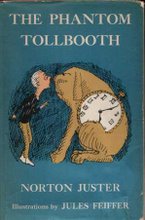
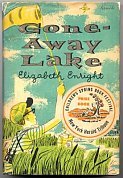
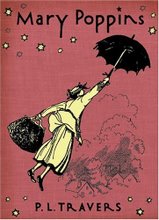
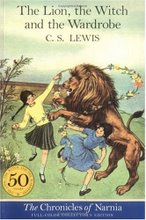
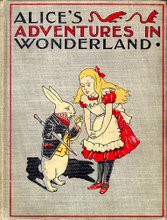
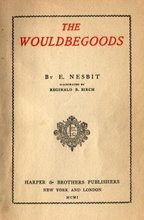
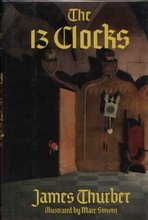
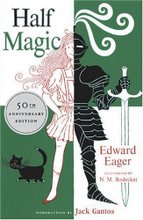



6 comments:
I haven't read anything by Hale yet. But I'm a fan of retold fairy tales and always have been, for lo! these many years now. Bring 'em on.
I'm not quite sure what you're asking about Hale and YA and NOT YA. Generally, in books, I'd say that YA stars a teen protagonist, which would bring Huck Finn andHolden Caulfield into the fold retroactively. A teen protagonist who is functioning as an adult, the 16-year-old Scarlett O'Hara, for example, probably wouldn't be classified as YA, regardless of how popular it might be with teen readers.
Traditionally, Disney animated films are written and intended for an adult audience, although the popular Princess marketing and direct-to-video sequels are for the child audience.
I'm not a big retold fairy tale person in general (though I did enjoy both The Goose Girl and Into the Wild. But I would classify Hale's books as perfect for middle school readers. I think that in a perfect world we'd have books for early elementary (easy readers), late elementary (the lower end of the traditional middle grade), middle school, and high school. But of course even with more categories, there will still be books that fall right on the line. Or overlap.
One thing I like about Shannon Hale is her very thoughtful blog, and her defense of kids being able to read books that they enjoy.
I love retold fairy tales and enjoy writing them, too. The ones most interesting to me have a shift in the point of view. I'm looking forward to reading The Magic Circle by Donna Jo Napoli (it's coming up on my to-read list)--the story is a retelling of Hansel and Gretel told from the witch's pov!
Here's an interesting TIME article, from May. It's about how fractured fairytales are becoming more popular and more common than the traditional retellings, to the point where kids may not even be aware of the tales which are being parodied.
Thanks so much for the link, Christi! I'm really interested in this trend...
Anyone else read Wicked? Do we think its part of the trend?
Christy: I'm a big fan of Donna Jo Napoli. You'll love The Magic Circle. Also, her book, Zel, is just fabulous.
Laurel: Wicked is very entertaining. I'm not sure if it counts as a "fairy tale," but I love it when another point of view gets top billing.
For more fairy tale/fractured fairy tale ideas, I like to visit the Endicott Studios blog. Have you been there?
Oh, and I loved your post about Half Magic. That's one of my all time childhood favorites.
I'm looking forward to reading The Magic Circle by Donna Jo Napoli (it's coming up on my to-read list)--the story is a retelling of Hansel and Gretel told from the witch's pov!.I'm not quite sure what you're asking about Hale and YA and NOT YA. Generally, in books, I'd say that YA stars a teen protagonist, which would bring Huck Finn andHolden Caulfield into the fold retroactively. A teen protagonist who is functioning as an adult, the 16-year-old Scarlett O'Hara, for example, probably wouldn't be classified as YA, regardless of how popular it might be with teen readers.
I think that in a perfect world we'd have books for early elementary (easy readers), late elementary (the lower end of the traditional middle grade), middle school, and high school. But of course even with more categories, there will still be books that fall right on the line. Or overlap.
widecircles
Post a Comment